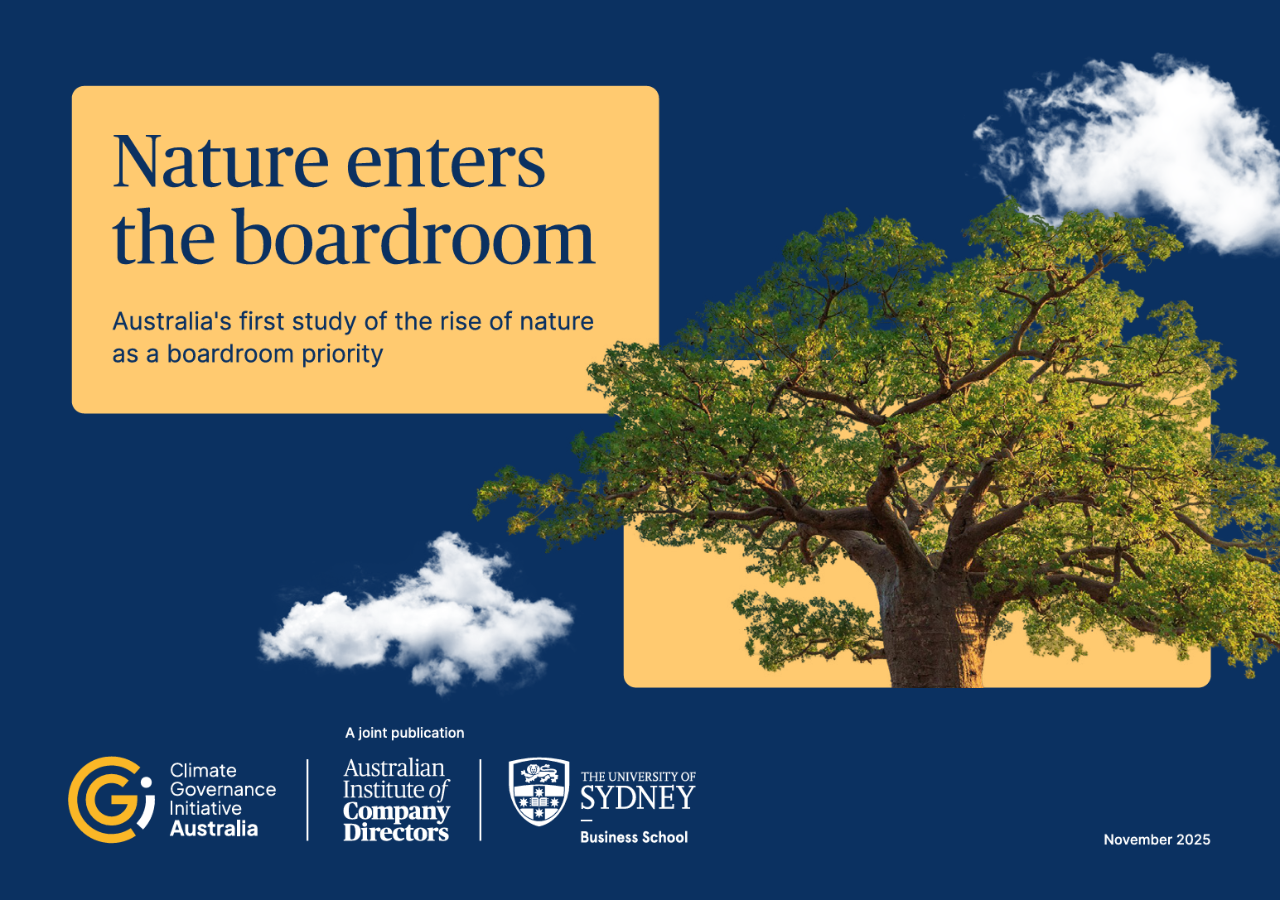Australia’s first study of how directors are responding to nature as a governance priority
This is the first Australian study to examine how boards are beginning to consider nature in their governance, strategy and risk oversight. Developed by the AICD and the University of Sydney Business School, it provides new evidence on how non-executive directors and chairs are identifying and managing nature-related risks and opportunities.
What is nature-related governance
Nature-related governance describes how boards oversee their organisation’s relationship with nature – the dependencies, impacts and risks that influence long-term value and resilience.
Nature underpins Australia’s economy – from water and soil to biodiversity and ecosystems that sustain industry, infrastructure and supply chains. As these systems come under pressure, this study finds directors are recognising that effective governance of nature is critical to organisational resilience, value creation and social license.
What the study found
The findings show that directors see nature as a material governance issue – but practice is varied and at an early stage of maturity.
Four in five directors (81 per cent) surveyed agreed that nature-related risks are an important consideration for their organisations.
Half (52 per cent) report having updated risk frameworks to include nature-related issues, and one in three have sought external expert advice.
The study found that ‘nature’ is rarely named directly in board discussions – it is most often addressed through topics such as climate, resilience or cultural heritage.
Increasingly, boards are adapting their existing climate governance practices to nature, extending risk systems and oversight approaches developed for climate to encompass broader environmental dependencies and impacts.
Oversight arrangements are varied: one in five report their boards have no formal structures, while another fifth are ‘active’ on nature – integrating nature within climate governance, setting targets and drawing on frameworks, such as the Taskforce on Nature-related Financial Disclosures (TNFD).
Policy and capability barriers persist
Fifty-one per cent of directors cite unclear Australian policy – particularly the absence of national environmental standards – as a key barrier to stronger board action. Directors also identify growing financial exposure from nature-related risks, including supply-chain disruption, litigation and rising costs.
About the study
Drawing on an AICD member survey (June 2025) and director consultations (September 2025), the study captures responses from more than 250 chairs and non-executive directors across sectors. It offers a statistically significant snapshot of independent board oversight and a baseline to track change over time.
How this resource can help
The report supports directors to:
Benchmark board practice on nature-related governance
Understand emerging regulatory and investor expectations
Identify capability needs in risk oversight, disclosure and strategy
Nature Enters the Boardroom offers a starting point for boards to consider how nature affects long-term value, resilience and purpose – and how governance must evolve to meet this growing area of responsibility.
Latest research
Already a member?
Login to view this content


